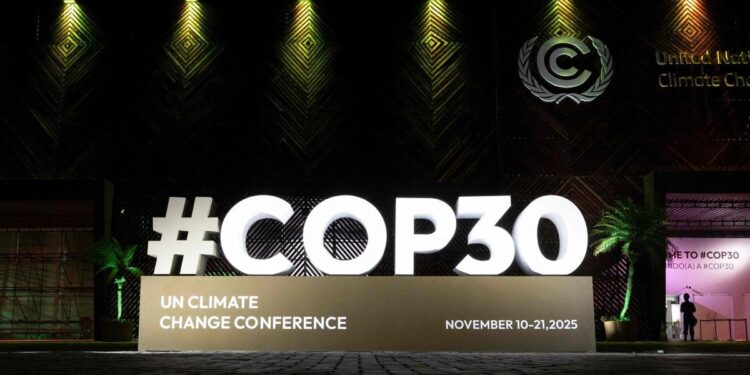Moral alarm at Brazil climate summit
Failing to keep global temperature rise below 1.5 °C is a “moral failure and deadly negligence,” declared UN secretary general António Guterres at the opening of the COP30 summit in Belém, Brazil. Speaking to delegates gathered in the Amazon, he said the target represented a “red line for a habitable planet” and warned that the world was drifting towards “collective suicide through inaction.”
A red line for humanity
Guterres cited new data showing that global temperatures are on track to rise by roughly 2.3 °C by the end of the century—far beyond the limit agreed under the Paris Agreement. He warned that every fraction of a degree now determines the difference between manageable disruption and catastrophic collapse. “Crossing 1.5 °C is not simply a number on a chart,” he said, “it is a death sentence for countless communities.”
The call for a paradigm shift
The UN chief urged world leaders to enact what he termed a “paradigm shift” in climate action, moving from pledges to immediate implementation. He condemned the continued expansion of fossil-fuel subsidies as “madness” and demanded that financial systems be realigned to fund renewable energy, adaptation and loss-and-damage measures. Guterres said the summit must deliver “real accountability” rather than another round of symbolic commitments.
A summit overshadowed by absence and urgency
While several nations announced new reforestation and clean-energy programmes, the absence of some of the world’s largest polluters—most notably the United States and China—cast a shadow over proceedings. Delegates from developing countries emphasised that without large-scale financial support, many nations will be forced to choose between survival and sustainability. The World Meteorological Organization warned that 2025 is on track to become one of the hottest years ever recorded, intensifying calls for action.
The moral dimension of climate policy
Beyond science and economics, Guterres framed the climate crisis as an ethical confrontation with humanity’s own choices. To miss the 1.5 °C goal, he said, is not just a failure of policy but a failure of compassion—“a betrayal of the most vulnerable and of future generations.” The appeal for moral leadership resonated strongly in the host nation, where Brazil’s government has pledged to make the Amazon’s protection central to its climate agenda.
Newshub Finance Editorial in Latin America – 7 November 2025




Recent Comments